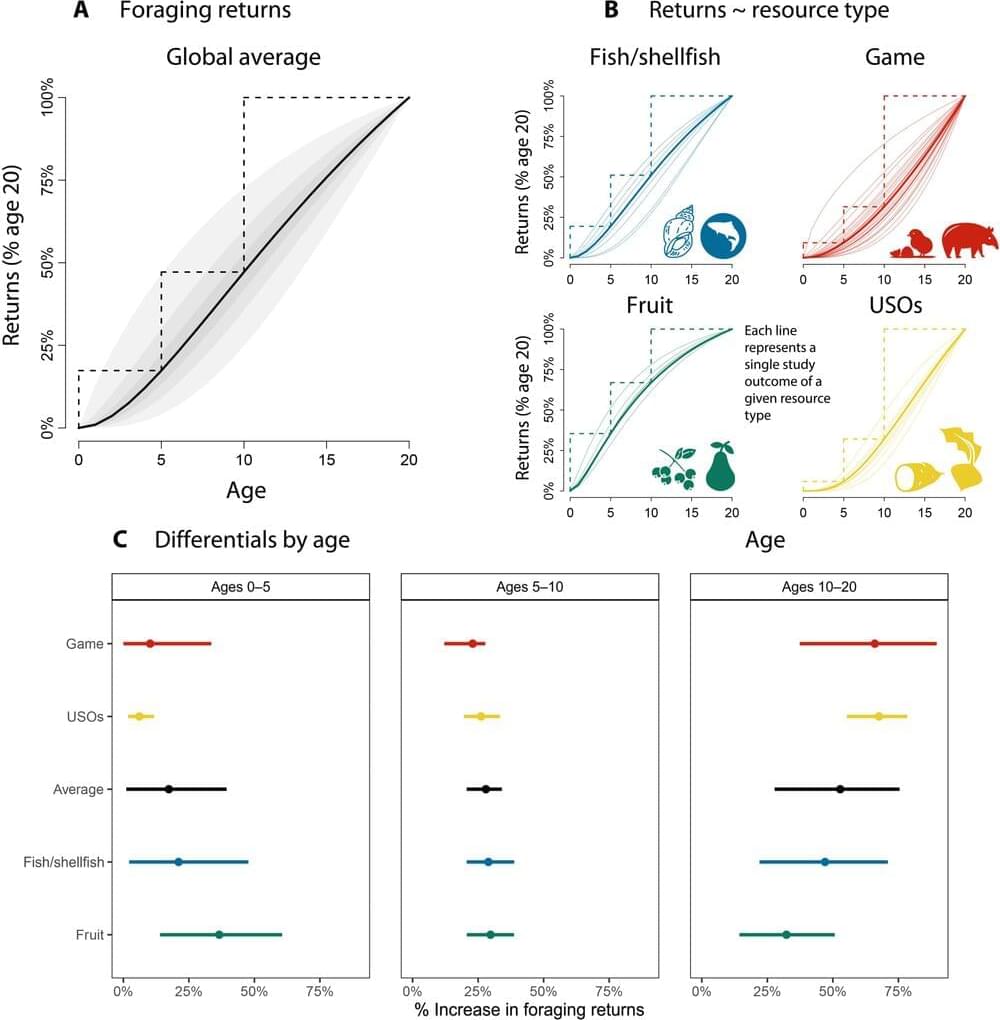Ilaria Pretelli and Sheina Lew-Levy from the Max Planck Institute for Evolutionary Anthropology and Erik Ringen from Emory University report evidence to support a theory that the reason human beings have such a long developmental period is that it takes a long time to learn complex foraging skills. The study is published in the journal Science Advances.
Scientists have long puzzled over the reason for the long human developmental period—it can take nearly two decades for humans to fully mature. Some researchers have suggested it is merely a byproduct of a long lifespan, while others have suggested it is more likely due to the steep learning curve involved in becoming proficient at foraging. In this new effort, the researchers suspected it was the latter and sought supporting evidence in past studies that focused on modern groups of people that still rely on foraging.
The groups studied by the researchers included Inuit, Cree, the Hadza and Martu. As part of their study, they first categorized the degree of difficulty in foraging based on the type of foraging done by the groups under study. It takes little time to learn how to identify and pick berries, for example, while many years are needed to learn how to hunt with a bow and arrow. They also noted that the types of foraging have different physical requirements. Digging for tubers, for example, requires a lot more effort than pulling fruit from a tree, though the latter may also require more height.
